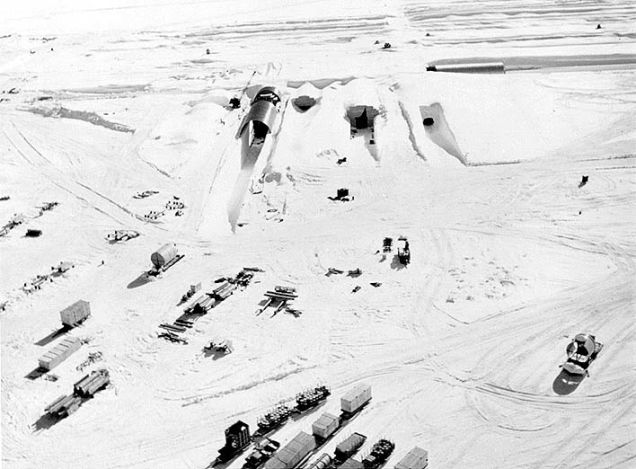
During the Cold War, the US Army studied the feasibility of launching ballistic missiles from within Greenland’s ice sheet. When the project was done, engineers buried biological, chemical, and radioactive waste in the ice thinking it would be preserved for eternity. Shame they didn’t know about global warming.
Called Camp Century, the facility was built by the US Army Corps of Engineers in 1959, and it doubled as a top-secret site to see if it was possible to deploy nukes from the Arctic. Known as “the city under ice,” the subterranean base was built 125 miles (220 km) inland from the Greenland coast. It housed 85 to 200 soldiers and scientists, and even included a portable nuclear reactor.
“This stuff was going to come out anyway, but what climate change did was press the gas pedal to the floor and say, ‘it’s going to come out a lot faster than you thought.’”
After it was decommissioned in 1969, the Army left virtually everything behind. They figured, not unreasonably, that steadily accumulating snowfall would preserve Camp Century and its contents for centuries, if not longer. A new study published in Geophysical Research Letters suggests this was an imprudent decision, and that the abandoned waste left at the site is now at risk of leaching into the environment. The reason, needless to say, has to do with rising global temperatures and the inexorable melting of the Greenland Ice Sheet.












